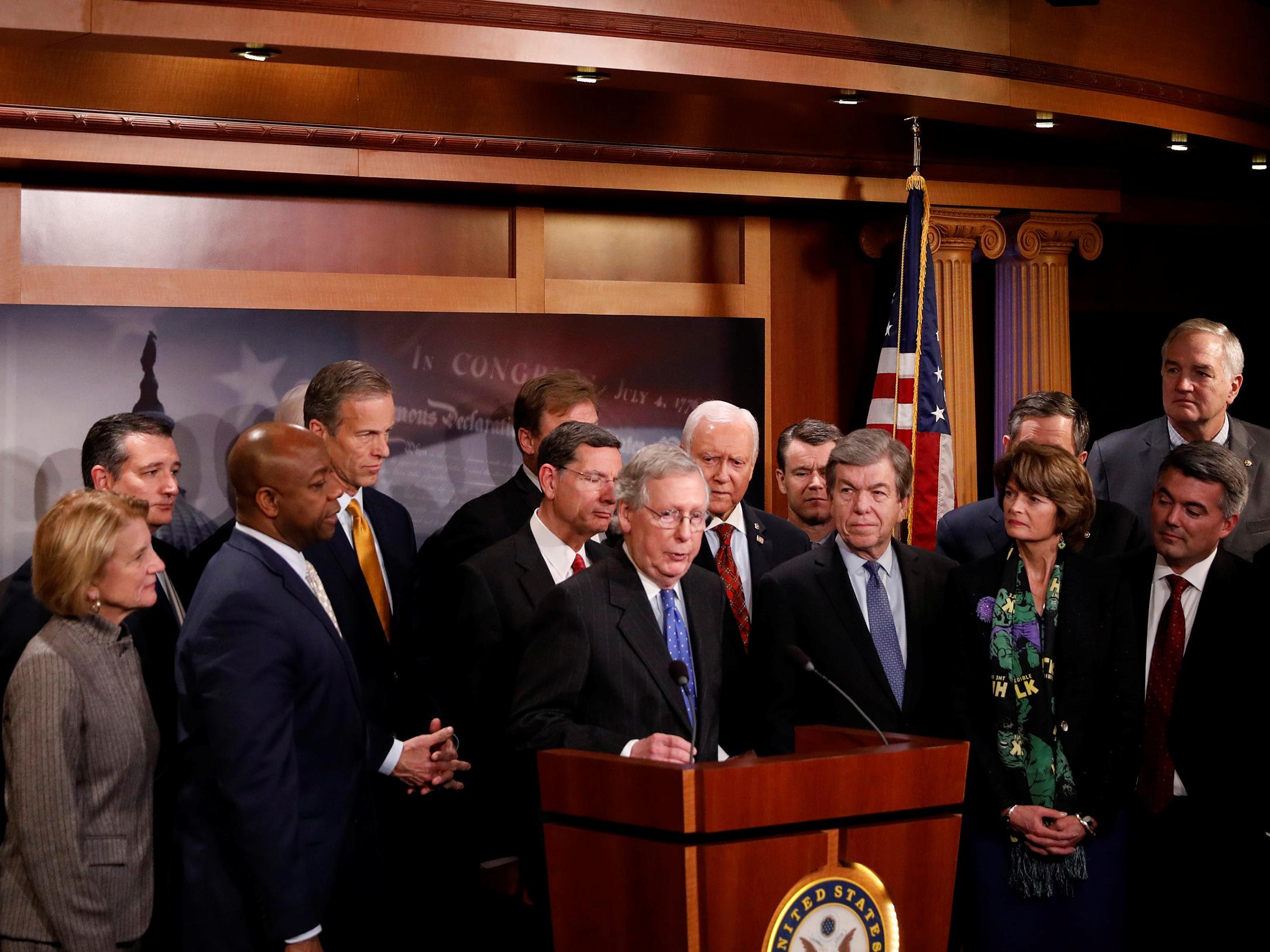Republican tax bill risks raising cost of university for wealthy families and further alienating key Trump supporters
Congress votes in favour of reforms that kill off crucial exemptions, hitting upper middle-classes with children in college hardest

Your support helps us to tell the story
From reproductive rights to climate change to Big Tech, The Independent is on the ground when the story is developing. Whether it's investigating the financials of Elon Musk's pro-Trump PAC or producing our latest documentary, 'The A Word', which shines a light on the American women fighting for reproductive rights, we know how important it is to parse out the facts from the messaging.
At such a critical moment in US history, we need reporters on the ground. Your donation allows us to keep sending journalists to speak to both sides of the story.
The Independent is trusted by Americans across the entire political spectrum. And unlike many other quality news outlets, we choose not to lock Americans out of our reporting and analysis with paywalls. We believe quality journalism should be available to everyone, paid for by those who can afford it.
Your support makes all the difference.After Congress voted in favour of a bill overhauling the US tax code, many parents of college-age children appear to be in store for an unexpected surprise - one that could result in a tax hike.
The Republican plan makes a series of complex changes to the tax code that, in the end, appear to cost these parents more.
The tax bill nixes the standard exemptions every taxpayer gets to take, while doubling both the standard deduction and the child tax credit.
It sounds good, but there is a hole that could trap parents just as their children are racking up big college tuition bills - one that doesn't appear to be intentional.
“I don't think they gave it a lot of thought,” said Steve Wamhoff, senior fellow for federal tax policy at the Institute on Taxation and Economic Policy.
Currently, all parents can take a $4,150 tax exemption for each child up to age 19 or up to 24 if the child is in college. That reduces taxable income. For someone in the upper middle-class, who faces a marginal tax rate of 25 percent, that's a $1,038 reduction in annual federal taxes for each child.
But the GOP bill kills off exemptions. They are replaced, in part, with a larger standard deduction and a bigger child tax credit. There's also a new $500 family tax credit for dependents, including children, who are too old to qualify for the child tax credit.
For parents with children younger than 17, the changes are all a bit of a wash or even work out to a tax cut.
The pain point could be for families with dependent children 17 to 24 years old. The math works out less kindly for them. No one gets personal exemptions, and their children no longer qualify for a child tax credit, but the new family tax credit is much smaller.
So a married couple with very low income - under $30,000 - and two college-age children wouldn't see a big change, said Elaine Maag, senior research associate at the Tax Policy Center. In this case, the changes to the tax code mostly work out for them.
But a married couple with $100,000 in annual income and kids in college could face problems. The tax code changes end up covering only part of their first college student - compared to the tax benefit today.
Two kids in college? Then the parents lose out - and end up potentially paying $500 to $1,000 or more in taxes. It's hard to say with precision because of the tax bill's host of changes.
So the changes proposed in the GOP tax bill would likely lead to a tax hit for, at the very least, upper middle-class parents of children in college.
And it will hurt more in the future. The current personal and dependent exemption is tied to inflation. It rose $100 from 2016 to 2017. But the proposed tax credits are not. So they will only get less valuable in the future, raising the tax burden for families.
Maag said she considered a tax credit to be more fair than a tax exemption for children because it gives the same tax benefit no matter how much the parents earn.
But that means some parents will lose out. And those are concentrated in the upper middle class.
With college tuition costs spiralling upward and college affordability already a hot topic, this is one tax move that could make that problem worse.
The Washington Post
Join our commenting forum
Join thought-provoking conversations, follow other Independent readers and see their replies
Comments